University of Osnabrück
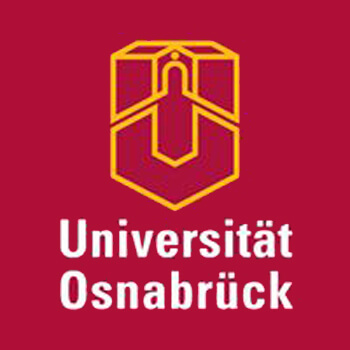
Founded: 1974
Address: Neuer Graben/Schloss - Osnabruck, Germany
Phone: +49541 9690
Address: Neuer Graben/Schloss - Osnabruck, Germany
Phone: +49541 9690
Here you find out University of Osnabrück complete information about fees, location, degree University of Osnabrück offers, number, website, and much more. University of Osnabrück is a leading university in Osnabruck - Germany.
You can also find out jobs at University of Osnabrück for students, teachers, and professors. We also update the database for an internship at University of Osnabrück for students.
Osnabrück University, founded in 1974, is a young, vibrant university in northwest Germany that is renowned for its research and teaching in the areas of Humanities, Social Sciences, Science, Law and Business Administration/Economics. The University provides ideal conditions for about 14.000 students and PhD students to learn and conduct research. Both its structured PhD programs and modular d...egree programs feature high standards of quality; they are accredited, and lead to the conferral of internationally recognized degrees.
One feature of Osnabrück University is the extent to which it combines different scientific disciplines in research and teaching. Thinking beyond the borders of individual fields of expertise is fostered in the interdisciplinary institutes of Migration Research, Cognitive Science, Early Modern Intercultural Studies and Environmental Systems Research. Biology at Osnabrück is renowned both at home and abroad for its Collaborative Research Centre “Physiology and dynamics of cellular micro-compartments (CRC 944)”. The European Legal Studies Institute at Osnabrück University is one of Europe’s most important research facilities in the field of comparative law and the harmonization of law.
Additional key areas are the prevention of occupational skin diseases and early childhood education and development. In 2011, the German Research Center for Artificial Intelligence established a branch office at Osnabrück University. A Fraunhofer research group explores the topics of e-learning and knowledge communication in combination with intelligent methods of data analysis.
Osnabrück University employs some 1,700 people, making it one of the largest employers in the region. Numerous cooperative activities with commercial enterprises and institutions enable students to gain practical experience at an early stage. Other examples of the extent to which Osnabrück University is embedded within the region are the Erich Maria Remarque Peace Center and the high-profile Osnabrück Peace Forum, hosted jointly by Osnabrück University and the City.
At the beginning of 2015, Osnabrück University took the initiative and set out to develop a Future Concept that corresponds to the University’s framework conditions and potential for development, a concept that is backed by members of the University and that offers a basis from which to continue developing the University within a dynamic process. In the context of this process, academics at Osnabrück University have identified six profile lines for joint, interdisciplinary research projects.
Osnabrück University is highly committed to pursuing its goal of enhancing international understanding and cooperation. The University attaches great importance to its relationships with international universities. International students and scholars are very welcome at Osnabrück. In accordance with Section B.3. of the 2005 to 2008 Target Agreement between Lower Saxony Ministry of Science and Culture and Osnabrück University, the Senate decided unanimously in 2007 to continue the internationalization strategy of December 2001, and recommended the implementation of the following measures to the President’s Cabinet/the Schools.
Osnabrück University is renowned for its research and teaching in the areas of Humanities, Social Sciences, Science, Law and Business Administration/Economics. The University’s nine Schools provide ideal conditions for over 14000 students and PhD students to learn and conduct research. Both its structured PhD programs and modular degree programs feature high standards of quality; they are accredited, and lead to the conferral of internationally recognized degrees. The combination of different scientific disciplines in research and teaching is also reflected in the University’s three interdisciplinary institutes.
The School of Cultural Studies and Social Sciences ‒ an amalgamation of the former School of Social Sciences and School of Cultural Studies and Geography ‒ comprises institutes and departments of Geography, History, Art History, Art, Textile Design and Social Sciences. The second largest School at Osnabrück University, with over 30 professorships and some 3,000 students on numerous Bachelor and Master’s programs, has a broad range of departments and is closely interconnected in research and teaching both within the University and outside it.
In particular, the School maintains close connections to the interdisciplinary Institutes of Migration Research and Intercultural Studies (IMIS) and Early Modern Intercultural Studies (IKFN). In addition, the School is associated with the EU-funded Jean Monnet Centre of Excellence in European Studies, the Costa Rica Research Center and the Center for Democracy and Peace Research.
In teaching, the School offers its students not only Education degree programs, Dual Major and One-Subject Bachelor’s Degrees, but also various Master’s programs in Soils, Inland Waters and Contaminated Land; History; Art History: Architecture and Art within the Context of Cultural History; Economic and Social Geography; Democratic Governance and Civil Society; European Governance; Sociology: Dynamics of Social Change; and International Migration and Intercultural Relations (IMIB).
The research group "Behavioral Economics for the Environment" of the Alexander-von-Humboldt (AvH) professorship for Environmental Economics of the University of Osnabrück (UOS) is working on behavioral aspects of environmental policies. It is part of the Institute for Environmental Systems Research. We are particularly interested in two types of modern policy approaches and the ways to combine them: economic incentives, in particular payments for ecosystem services (PES), and cooperative approaches based on self-regulation. These two approaches have developed independently and are based on apparently contradicting assumptions about what drives human behavior, namely (i) self-interest, requiring material motivations, or (ii) social and environmental preferences providing intrinsic motivations for sustainable action.
However, individuals are more likely to have a mix of these motivations and to weigh them differently in contexts with strong or weak social norms. It is thus increasingly clear that neither approach alone will effectively address contemporary environmental challenges.
The central idea behind this research training group is the interpenetration of combinatorics and geometry. The research results of all scientists involved have been strongly influenced by these crosslinks for quite some time as they enable extremely precise structure related conclusions. This particularly applies for objects of algebraic geometry, as e.g. affine and projective varieties, and for objects of discrete geometry, as e.g. cones or polytopes. These common questions of mathematical disciplines, which often work isolated, shall be connected by a cross-linkage of different approaches and questions. The research programme of this training group therefore focuses on projects of at least two fields of interest so that – on one hand – new tools are provided for every individual field and – on the other hand – the examination of new theoretical questions is stimulated.
You can also find out jobs at University of Osnabrück for students, teachers, and professors. We also update the database for an internship at University of Osnabrück for students.
Osnabrück University, founded in 1974, is a young, vibrant university in northwest Germany that is renowned for its research and teaching in the areas of Humanities, Social Sciences, Science, Law and Business Administration/Economics. The University provides ideal conditions for about 14.000 students and PhD students to learn and conduct research. Both its structured PhD programs and modular d...egree programs feature high standards of quality; they are accredited, and lead to the conferral of internationally recognized degrees.
One feature of Osnabrück University is the extent to which it combines different scientific disciplines in research and teaching. Thinking beyond the borders of individual fields of expertise is fostered in the interdisciplinary institutes of Migration Research, Cognitive Science, Early Modern Intercultural Studies and Environmental Systems Research. Biology at Osnabrück is renowned both at home and abroad for its Collaborative Research Centre “Physiology and dynamics of cellular micro-compartments (CRC 944)”. The European Legal Studies Institute at Osnabrück University is one of Europe’s most important research facilities in the field of comparative law and the harmonization of law.
Additional key areas are the prevention of occupational skin diseases and early childhood education and development. In 2011, the German Research Center for Artificial Intelligence established a branch office at Osnabrück University. A Fraunhofer research group explores the topics of e-learning and knowledge communication in combination with intelligent methods of data analysis.
Osnabrück University employs some 1,700 people, making it one of the largest employers in the region. Numerous cooperative activities with commercial enterprises and institutions enable students to gain practical experience at an early stage. Other examples of the extent to which Osnabrück University is embedded within the region are the Erich Maria Remarque Peace Center and the high-profile Osnabrück Peace Forum, hosted jointly by Osnabrück University and the City.
At the beginning of 2015, Osnabrück University took the initiative and set out to develop a Future Concept that corresponds to the University’s framework conditions and potential for development, a concept that is backed by members of the University and that offers a basis from which to continue developing the University within a dynamic process. In the context of this process, academics at Osnabrück University have identified six profile lines for joint, interdisciplinary research projects.
Osnabrück University is highly committed to pursuing its goal of enhancing international understanding and cooperation. The University attaches great importance to its relationships with international universities. International students and scholars are very welcome at Osnabrück. In accordance with Section B.3. of the 2005 to 2008 Target Agreement between Lower Saxony Ministry of Science and Culture and Osnabrück University, the Senate decided unanimously in 2007 to continue the internationalization strategy of December 2001, and recommended the implementation of the following measures to the President’s Cabinet/the Schools.
Osnabrück University is renowned for its research and teaching in the areas of Humanities, Social Sciences, Science, Law and Business Administration/Economics. The University’s nine Schools provide ideal conditions for over 14000 students and PhD students to learn and conduct research. Both its structured PhD programs and modular degree programs feature high standards of quality; they are accredited, and lead to the conferral of internationally recognized degrees. The combination of different scientific disciplines in research and teaching is also reflected in the University’s three interdisciplinary institutes.
The School of Cultural Studies and Social Sciences ‒ an amalgamation of the former School of Social Sciences and School of Cultural Studies and Geography ‒ comprises institutes and departments of Geography, History, Art History, Art, Textile Design and Social Sciences. The second largest School at Osnabrück University, with over 30 professorships and some 3,000 students on numerous Bachelor and Master’s programs, has a broad range of departments and is closely interconnected in research and teaching both within the University and outside it.
In particular, the School maintains close connections to the interdisciplinary Institutes of Migration Research and Intercultural Studies (IMIS) and Early Modern Intercultural Studies (IKFN). In addition, the School is associated with the EU-funded Jean Monnet Centre of Excellence in European Studies, the Costa Rica Research Center and the Center for Democracy and Peace Research.
In teaching, the School offers its students not only Education degree programs, Dual Major and One-Subject Bachelor’s Degrees, but also various Master’s programs in Soils, Inland Waters and Contaminated Land; History; Art History: Architecture and Art within the Context of Cultural History; Economic and Social Geography; Democratic Governance and Civil Society; European Governance; Sociology: Dynamics of Social Change; and International Migration and Intercultural Relations (IMIB).
The research group "Behavioral Economics for the Environment" of the Alexander-von-Humboldt (AvH) professorship for Environmental Economics of the University of Osnabrück (UOS) is working on behavioral aspects of environmental policies. It is part of the Institute for Environmental Systems Research. We are particularly interested in two types of modern policy approaches and the ways to combine them: economic incentives, in particular payments for ecosystem services (PES), and cooperative approaches based on self-regulation. These two approaches have developed independently and are based on apparently contradicting assumptions about what drives human behavior, namely (i) self-interest, requiring material motivations, or (ii) social and environmental preferences providing intrinsic motivations for sustainable action.
However, individuals are more likely to have a mix of these motivations and to weigh them differently in contexts with strong or weak social norms. It is thus increasingly clear that neither approach alone will effectively address contemporary environmental challenges.
The central idea behind this research training group is the interpenetration of combinatorics and geometry. The research results of all scientists involved have been strongly influenced by these crosslinks for quite some time as they enable extremely precise structure related conclusions. This particularly applies for objects of algebraic geometry, as e.g. affine and projective varieties, and for objects of discrete geometry, as e.g. cones or polytopes. These common questions of mathematical disciplines, which often work isolated, shall be connected by a cross-linkage of different approaches and questions. The research programme of this training group therefore focuses on projects of at least two fields of interest so that – on one hand – new tools are provided for every individual field and – on the other hand – the examination of new theoretical questions is stimulated.
Read More
Details:
LeaderShip:
Fees:
Time:
Phone Number: +49541 9690
City: Osnabruck
Fees:
Time:
Phone Number: +49541 9690
City: Osnabruck
Timing:
Country: Germany
Staff:
Website: http://www.uni-osnabrueck.de
Country: Germany
Staff:
Website: http://www.uni-osnabrueck.de
Subjects:
Jobs in University of Osnabrück
Currently, there is no job opening in University of Osnabrück as per our database.

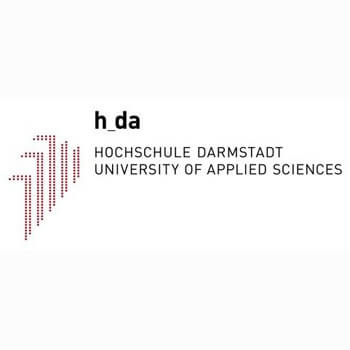
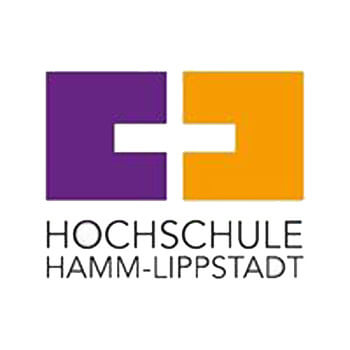
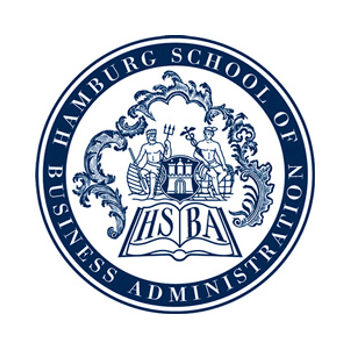

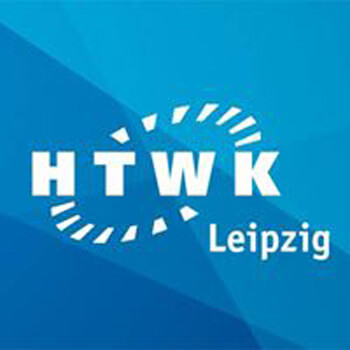


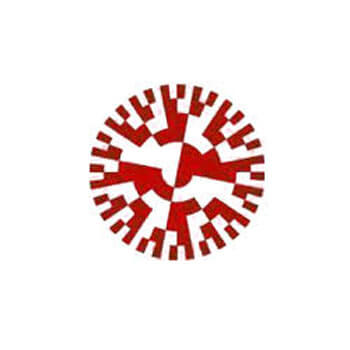










Leave a Reply